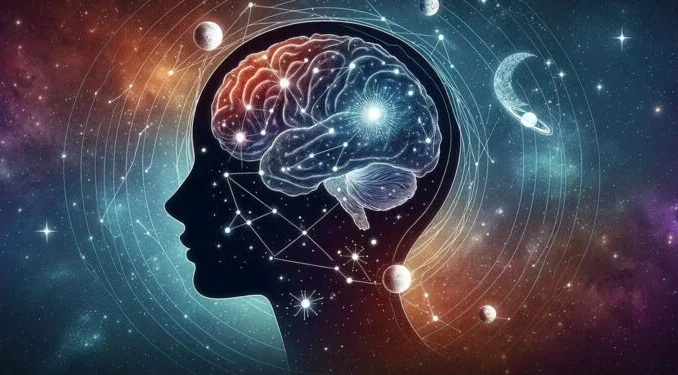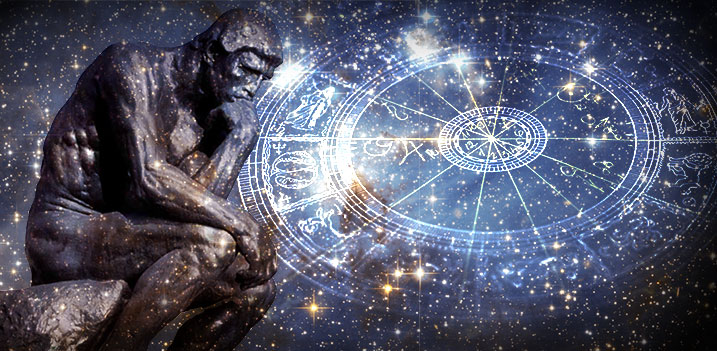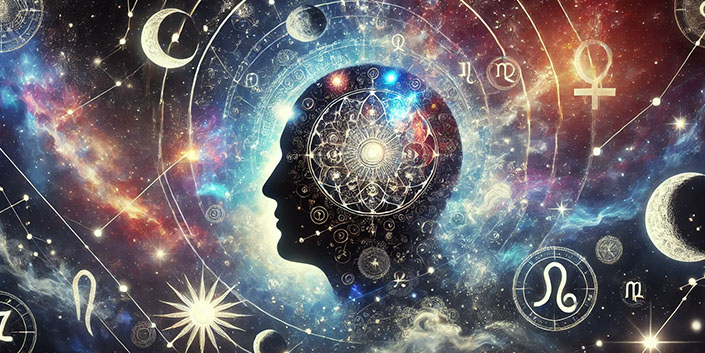
In the quest to understand the complexities of human behavior and personality, two ancient yet ever-evolving disciplines have stood the test of time: astrology and psychology. While astrology traces its roots back to ancient civilizations, seeking to decipher the cosmic influences shaping individual destinies, psychology emerged in more recent centuries as a scientific endeavor to explore the intricacies of the human mind. Despite their differing methodologies and origins, both fields share a common objective—to illuminate the inner workings of the human psyche. This article embarks on an exploratory journey into the intersection of astrology and psychology, examining how these dual mirrors reflect and illuminate the depths of the human soul.
The Fundamentals of Astrology
At the heart of astrology lies a sophisticated system of symbolism that maps celestial events onto human experiences. Key elements include:
Constellations or Zodiac Signs: Representing twelve distinct archetypes, each sign encapsulates a unique set of characteristics, emotions, and behaviors. From the adventurous Sagittarius to the meticulous Virgo, these signs serve as a cosmic blueprint for individual personalities.
Planets: Beyond the personal planets (Mercury, Venus, Mars), outer planets like Jupiter, Saturn, Uranus, Neptune, and Pluto carry broader, generational influences, shaping societal trends and individual destinies.
Houses or Palaces: The twelve houses of the natal chart divide life into different areas such as career, relationships, and personal growth, offering insights into where and how celestial energies manifest in one’s life.
Aspects or Phases: The angles formed between planets reveal how different energies interact, creating harmonious or challenging dynamics that influence personal relationships and life events.

The Theoretical Foundations of Psychology
Psychology, on the other hand, has diversified into numerous schools of thought, each offering a unique lens through which to view the human mind:
Psychoanalysis, founded by Sigmund Freud, emphasizes unconscious desires, childhood experiences, and defense mechanisms in shaping personality.
Behaviorism, led by figures like John B. Watson, focuses on observable behaviors, asserting that learning experiences are paramount in shaping individual responses.
Humanism, championed by Carl Rogers and Abraham Maslow, underscores the importance of self-actualization, personal growth, and the inherent potential within every individual.
The Meeting Point: Mapping Astrological Symbolism onto Psychological Structures
The convergence of astrology and psychology becomes evident when one considers how the symbolic language of astrology mirrors psychological constructs. For instance, the concept of the planetary ruler of a sign can be paralleled to the notion of a dominant psychological function in Jungian psychology. Just as the Sun in an astrological chart signifies the core identity, the ego in Freudian psychology represents the conscious self. Aspects between planets, such as conjunctions or oppositions, echo the interplay between different psychological states or conflicts within an individual, much like the dynamics between the id, ego, and superego in Freudian theory.
Furthermore, the houses of an astrological chart can be seen as reflecting the various domains of Maslow’s hierarchy of needs, with the first house representing self-esteem and the tenth house symbolizing the pursuit of one’s career and sense of accomplishment. This symbolic resonance suggests that astrological interpretations can serve as a metaphorical language, enriching psychological understandings by providing a cosmic framework for personal growth and self-awareness.

Conclusion: The Potential for Integration in Self-Exploration and Therapy
The integration of astrology and psychology presents a fascinating frontier for personal development and therapeutic practice. By embracing the symbolic wisdom of astrology alongside the empirical rigor of psychology, individuals can embark on a deeper journey of self-discovery. A therapist incorporating astrological insights might help clients gain a fresh perspective on recurring patterns, emotional triggers, and life purpose. Conversely, understanding psychological principles can enrich an astrological consultation, offering practical strategies for navigating challenges and harnessing strengths revealed in the natal chart.
As we navigate the complexities of the human condition, the dual mirrors of astrology and psychology offer complementary reflections, inviting us to explore the depths of our being with greater clarity and compassion. By bridging these ancient and modern wisdoms, we open up new avenues for personal transformation and healing, illuminating paths towards self-realization and fulfillment.

Leave a Reply